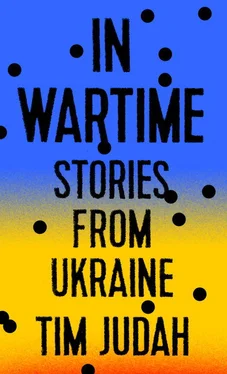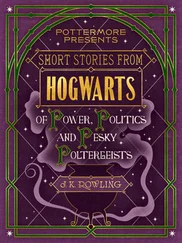Natalie was born in 1965 in Chicago, and her progression from diaspora girl to minister was not obvious. When, after the general election of October 2014, she was asked to take the post, she recalled thinking that if she turned down the offer,
if I had not tried to help, I would never have forgiven myself. This country has given me everything I have and my children fascinating lives. I had to give back. You need to take into account that we had a revolution, watched Crimea being stolen on live TV and then came the war. People are dying. I know people who died on the Maidan. My daughters sold their toys to help refugees! My grandparents told me stories of the war, but this is different, it is real. There are men who are going to fight and don’t come back to their families… I thought to myself, “If I don’t do this, how can I live with myself?”
Raw emotion and finance ministers are not the most common of bedfellows, but in this case there is a straightforward biographical line that leads from a Chicago suburb to ministerial office. Natalie’s father was born in 1932, in the Poltava region in Soviet Ukraine, hence was a survivor from day one: he was born just as others in the family were dying of starvation in the Holodomor. Her mother was born in 1940 in Germany. Natalie’s grandmother, from western Ukraine, had been dispatched there to work by the Nazis, even though she was pregnant. She gave birth to a daughter, who was fostered by a German family. Five years later, the girl, who did not know she had “real” parents, was suddenly reclaimed by her mother, who arrived in a jeep with American GIs who had agreed to help her. Natalie’s father’s relatives fled as the Soviets returned to Ukraine, and both sides of the family ended up in a displaced persons’ camp in Germany. Sponsored by Ukrainians in the U.S., they were able to restart their lives in Chicago, and this is where her parents met.
Natalie’s father became an electrical engineer and worked for an insurance company for his whole career. Her mother was a secretary. On the weekends Natalie and her brother and sister went to Ukrainian school and participated in the community’s church activities. At home they spoke English. They were raised to have respect for their Ukrainian traditions, but not to think that they would ever go back to the country. Indeed, Natalie’s father believed that, as they lived in the U.S., “we needed to succeed in that environment and everything else was secondary.” He insisted she study something “useful.” Somewhat reluctantly, because she really wanted to study political science, she settled for accounting at university, though she double-majored in political science, which her father discovered only when she graduated. For her master’s, she went to the Kennedy School of Government at Harvard, and her father really hated this. As a Reagan Republican, he disapproved of anything that smacked of government. But Natalie was now old enough to make her own decisions. Still, her father refused to come to her graduation. Next step was the State Department and then, in 1992, as a Ukrainian-speaker who by now had some experience in economic affairs in what had just become the former Soviet Union, she was invited to set up the economics section of the brand-new American embassy in Kiev. Very excited at the prospect, she called her husband, also a Ukrainian-American. He was skiing in Colorado and was underwhelmed by the idea. She told him: “I am going.” He was not happy, but he followed, at least for a while. Now she points out, quite apart from carrying the troubles of Ukraine on her shoulders, she is a single mother.
When she arrived it was clear that Ukraine had already been in decline for years even before the post-Soviet economic nosedive that was now beginning. Referring to the main boulevard that leads to the Maidan in the center of Kiev, she said there were so few cars “you could cross Kreshchatyk with your eyes closed.” But, as the difficult period of settling in began to pass, she found herself becoming ever more excited about “the Ukraine that could be.” It was close to the rest of Europe, rich in various resources, had an educated population, ports and so on. “What more could you ask for?” In 1995 her time at the embassy was up. As she was a civil servant rather than a career diplomat, she faced the unappealing prospect of returning to a cubicle in an office in Washington, so, when an opportunity arose to stay in Ukraine, she grabbed it. USAID, the American government’s aid wing, asked her to help set up an investment fund for Ukraine, Moldova and Belarus. The idea was to invest in and encourage the growth of small and medium-sized enterprises. This, in turn, led to her starting her own investment house, called Horizon Capital, which was managing assets of more than $600 million when she sold her stake to take the job of Minister of Finance.
I asked her if investing had been a frustrating and disappointing experience, given that the big story of Ukraine since independence is one of lost opportunities. We had talked of how road builders and other contractors stole vast amounts, leaving the country with third-world roads. We had talked of how few paid income tax. “It is a vicious circle. People say, ‘Why should I pay tax if the government does not provide me with good schools and hospitals as it is supposed to?’ And the government in turn does not have the money to provide them as they are not paying tax.” The answer was surprising. Yes, it had been frustrating but not disappointing because times had been exciting, she had had opportunities she would never have had in the U.S. and because her business philosophy had worked. This had been to pay her taxes, “fly under the radar,” invest in things like wine, chocolate and consumer goods that she understood and steer clear of privatizations, energy and natural resources, which is what those who would become Ukraine’s oligarchs were interested in. And there were good times too. From 2000 to 2008, Ukraine’s GDP grew by an average of 8 percent a year, she said. Her companies were also relatively small, thus avoiding the attention of predatory raiders and for the most part corrupt tax officials. Only once was she openly asked for a bribe to complete a deal. The man she was negotiating with said cheerily: “Only one more signature to go!” and opened an empty briefcase in front of her. He did not get the cash, but she still got the deal. “I always looked at the glass as half full,” she said.
Though the business climate began to deteriorate during the Yanukovych period, until the moment he balked at signing the deals his government had been negotiating with the EU in November 2013, there was hope. The guidelines of the free trade agreement were, she says, seen as a “road map.” Once signed, “we’d be on the way.” When Yanukovych said he would not sign and demonstrations began, it was clear which side she was on. Discreetly she began to help the demonstrators and those camped out on the square. Her children’s nanny cooked up fatty meat stews to take to the men there, explaining that they needed the fat to protect them from the cold. Because she had been in Ukraine so long, Natalie knew not only many of the foreign diplomats but the political players too. She knew Petro Poroshenko, the man who would become president, for example, because she had invested in a competitor chocolate firm to his. Pupils at her children’s school would go to the Maidan when the day was done or even skip class to be there. She went with hers at the weekend and supported her office staff who took part in the protests.
Then, nine months after they were over, she was visited by headhunters taken on by the incoming Ukrainian government. They asked her for suggestions of people who should be hired and asked her if she was interested in a post in the government, to which she replied that the question was hypothetical as she had not been asked, and anyway she was not a Ukrainian citizen, which ruled her out. Within days she was offered the post of Minister of Finance and was granted citizenship when she took office. When she began work, one of her two assistants asked if they would be getting the usual cash bonus. It turned out that the minister was expected to bribe them not to accept bribes from others who were keen to find out the minister’s schedule and other interesting bits of information. As the answer was “no,” one left, but the other remained.
Читать дальше












